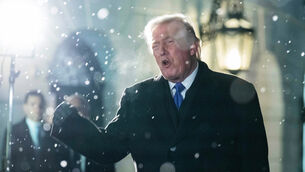Spectre of voting chaos looms over US election
Nearly four years ago, the US was in crisis. The country had gone to the polls, and the people had spoken, but no one knew who the next president would be.
The reason was those “hanging chads”, and a confusing voting method, caused by a cumbersome punch card system in Florida.














